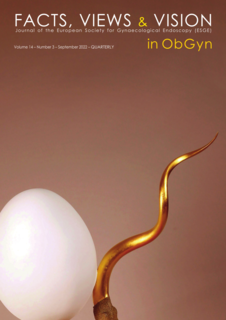Impact of the COVID-19 pandemic on surgery for severe endometriosis in the UK: a national database study
Endometriosis, laparoscopic surgery, COVID-19, coronavirus, Minimal access surgery
Published online: Jan 27 2023
Abstract
Background: The COVID-19 pandemic has had a significant effect on healthcare services, particularly affecting patients who suffer from chronic conditions. However, the pandemic’s effect on endometriosis surgery is not yet known.
Objectives: To determine the impact of the COVID-19 pandemic on surgery for severe endometriosis in the UK at a national, regional and centre-level.
Materials and Methods: The British Society for Gynaecological Endoscopy (BSGE) collects data nationally on all operations for severe endometriosis which involve dissection of the pararectal space. Annual audits of this database were obtained from the BSGE. Publicly available data on COVID-19 cases and population were obtained from the UK Office for National Statistics.
Main outcome measures: Numbers of annual BSGE-registered endometriosis operations.
Results: A total of 8204 operations were performed. The number of operations decreased by 49.4% between 2019 and 2020 and then increased in 2021, but remained 10.5% below average pre-pandemic levels, indicating at least 980 missed operations between 2019-2020. Median operations per centre decreased by 51.0% in 2020 (IQR 29.4% – 75.0%) and increased in 2021 but remained 33% below pre-pandemic levels. There was no change in the type of surgery performed. All 11 administrative regions of Great Britain had reduced numbers of operations in 2020 compared with the average for 2017-2019, with a median 44.2% decrease (range 13.3% - 67.5%). Regional reduction in operations was correlated with COVID-19 infection rates (r=0.54, 95% CI of r 0.022 – 1.00, p=0.043).
Conclusion: The number of operations performed annually in the UK for severe endometriosis fell dramatically during the COVID-19 pandemic and is yet to normalise.
What’s new? This study shows the dramatic effect that the COVID-19 pandemic has had on UK services for endometriosis surgery, which may continue to affect patients and clinicians for a considerable time to come.



